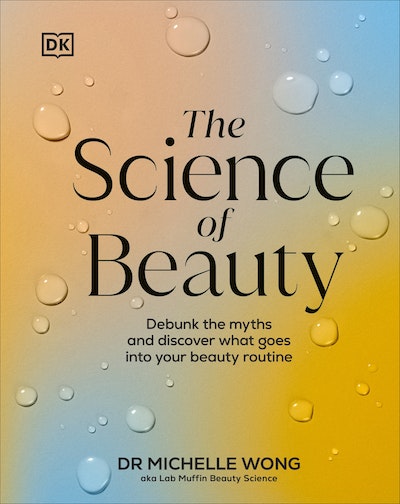We caught up with Michelle Wong, creator of Lab Muffin Beauty Scienceand author of The Science of Beauty, to find out what inspired her book.
Michelle Wong is a chemist with over twenty years of experience as a science educator.
In 2011, she created Lab Muffin Beauty Science to help people understand the science behind their favourite beauty products.
Since then, her online following has grown to 550 thousand followers on Instagram and 136 thousand on TikTok. Her no-nonsense approach to the beauty industry has made her a refreshing and trusted resource, and her new book The Science of Beauty takes things one step further as a must-have guide for anyone looking to learn more about the products they use every day.
We caught up with Michelle to learn more:
What inspired you to write The Science of Beauty?
I've been explaining the science behind beauty products for over ten years online. Over the years lots of people have asked me to write a book, so when DK approached me it was the perfect opportunity! I've always loved illustrated reference books. Diagrams are fantastic for helping visualise complex concepts – it's one of the reasons I started making videos, rather than sticking to text posts.
Since creating Lab Muffin Beauty Science in 2011, how has your opinion of the beauty industry changed?
Like many scientists coming from academia, I used to think that there wasn't much science in beauty and that everything was very straightforward compared to drugs and medicines (my PhD area). But over the years I've realised that the science is there, it's just much harder to find and navigate!
Your book delves into the science behind skincare, hair, makeup and nails, what was the research process like for your book?
First, I collated a list of common questions I've been asked over the years, then my editor helped me whittle down the list and arrange them into a sensible order for each chapter.
Then I read dozens of textbooks and scientific articles to ensure I hadn't missed any important topics. I'd made posts in the past about several of the questions, so for those, it was a matter of double-checking that the information was still accurate and adding in new research.
For topics I was less familiar with, I read books and review articles to get a general understanding of the area, then looked up relevant scientific studies to understand the specifics. Finally, I asked some specialist experts – cosmetic scientists, makeup artists and a dermatologist – to fact-check the different chapters.
Do you find it difficult to break down the science behind beauty products in ways that everyone can understand?
I generally don't find it difficult, since I've had over a decade of experience working on Lab Muffin, along with my chemistry teaching experience! But I did find it challenging to explain concepts thoroughly within the allocated word count for the book – I could've written ten times as much for some chapters, but then there wouldn't have been space for other topics. I'll no doubt be expanding on many of the topics in my online content over the next few years!
What is one beauty fact that has surprised you?
It's less damaging to detangle straight hair when it's dry, but for curly hair, it's less damaging to detangle when it's wet.
What advice would you give to those overwhelmed by all the beauty products out there?
Work out your skin and hair type and your goals for each, and refer back to these when deciding which products and tips to try. It's easy to get swept up in hype and waste money on products that weren't suitable for you in the first place!













